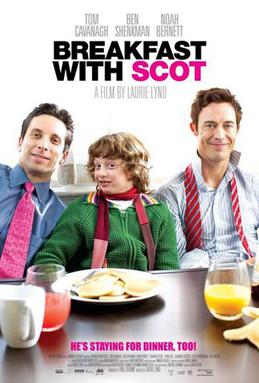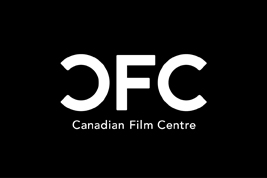Related Research Articles
"New queer cinema" is a term first coined by the academic B. Ruby Rich in Sight & Sound magazine in 1992 to define and describe a movement in queer-themed independent filmmaking in the early 1990s.

The Gemini Awards were awards given by the Academy of Canadian Cinema & Television between 1986–2011 to recognize the achievements of Canada's English-language television industry. The Gemini Awards are analogous to the Emmy Awards given in the United States and the BAFTA Television Awards in the United Kingdom. First held in 1986 to replace the ACTRA Award, the ceremony celebrated Canadian television productions with awards in 87 categories, along with other special awards such as lifetime achievement awards. The Academy had previously presented the one-off Bijou Awards in 1981, inclusive of some television productions.

Holly Cole is a Canadian jazz singer and actress. For many years she performed with her group The Holly Cole Trio.

Daniel MacIvor is a Canadian actor, playwright, theatre director, and film director. He is probably best known for his acting roles in independent films and the sitcom Twitch City.
The John Drainie Award was an award given to an individual who has made a significant contribution to broadcasting in Canada. Although meant to be presented annually, there have been years where it was not presented.

The Inside Out Film and Video Festival, also known as the Inside Out LGBT or LGBTQ Film Festival, is an annual Canadian film festival, which presents a program of LGBT-related film. The festival is staged in both Toronto and Ottawa. Founded in 1991, the festival is now the largest of its kind in Canada. Deadline dubbed it "Canada’s foremost LGBTQ film festival."
Laurie Lynd is a Canadian film and television director and screenwriter, best known as the director of the feature film Breakfast with Scot.
Gerry Rogers is a Canadian documentary filmmaker and politician. She was leader of the Newfoundland and Labrador New Democratic Party from 2018 until 2019. She served in the Newfoundland and Labrador House of Assembly as NDP MHA for the electoral district of St. John’s Centre from 2011 to 2019. She became the party's leader after winning the April 2018 leadership election. She resigned as party leader prior to the 2019 provincial election and did not seek re-election.

Breakfast with Scot is a 2007 Canadian comedy film. It is adapted from the 1999 novel by Tufts University professor Michael Downing.
Christian Duguay is a Canadian film director.

The Canadian Film Centre (CFC) is a charitable organization founded in 1988 by filmmaker Norman Jewison in Toronto, Ontario, Canada. Originally launched as a film school, today it provides training, development and advancement opportunities for professionals in the Canadian film, television and digital media industries, including directors, producers, screenwriters, actors and musicians.
The Academy of Canadian Cinema & Television's 6th Gemini Awards were held in March 1992 to honour achievements in Canadian television. There were no awards issued in 1991, so this year’s awards covered productions from 1991 and 1990. The awards show took place at the Metro Toronto Convention Centre and was broadcast on CBC Television.
Nik Sheehan is a Canadian documentary filmmaker, who established an international reputation with No Sad Songs (1985), the first major documentary on AIDS. The film cited by world-renowned specialist Dr. Balfour Mount as "the best film on the planet this year".
Back Alley Film Productions is a television production company founded by Janis Lundman and Adrienne Mitchell and based in Toronto, Ontario, and Montreal, Quebec Canada. Founded in 1989, Back Alley is a creator and producer of original content for television with programming available in more than 120 countries worldwide.

The Canadian Screen Awards are awards given for artistic and technical merit in the film industry recognizing excellence in Canadian film, English-language television, and digital media productions. Given annually by the Academy of Canadian Cinema & Television, the awards recognize excellence in cinematic achievements, as assessed by the Academy's voting membership.
The Fairy Who Didn't Want to Be a Fairy Anymore is a Canadian musical comedy-drama short film directed by Laurie Lynd, which premiered at the 1992 Toronto International Film Festival before going into wider release in 1993. Made as an academic project while Lynd was studying at the Canadian Film Centre, it won the Genie Award for Best Live Action Short Drama at the 14th Genie Awards.
Victoria Snow is a Canadian actress. She is best known for her recurring roles as Mary Margaret Skalany in Kung Fu: The Legend Continues and Dee White in Cra$h & Burn, and her starring role as Frances Hunter in Paradise Falls.
Hayseed is a Canadian comedy film, directed by Josh Levy and Andrew Hayes and released in 1997. The film stars Jamie Shannon as Gordon, a naive "hayseed" from a small town in Northern Ontario who travels to Toronto after receiving a tip from a psychic that his lost dog is in the city, and meets a bizarre cast of characters, from prostitutes to gay sex slave traders, during his trip.
The Canadian Screen Award for Best Supporting Actor in a Drama Series or Program is an annual Canadian television award, presented by the Academy of Canadian Cinema and Television to the best supporting performance by an actor in a Canadian dramatic television series or television film. Previously presented as part of the Gemini Awards, since 2013 it has been presented as part of the Canadian Screen Awards.
The Canadian Screen Award for Best Supporting Actress in a Drama Series or Program is an annual Canadian television award, presented by the Academy of Canadian Cinema and Television to the best supporting performance by an actress in a Canadian dramatic television series or television film. Previously presented as part of the Gemini Awards, since 2013 it has been presented as part of the Canadian Screen Awards.
References
- 1 2 3 B. Ruby Rich, "New Queer Cinema" in Michele Aaron, New Queer Cinema: A Critical Reader. Rutgers University Press, 2004. ISBN 978-0813534862. pp. 14-22.
- ↑ "Gay festival spotlights Canadian films". Ottawa Citizen , June 5, 1992.
- ↑ Laurie Lynd at mediaqueer.ca.
- ↑ "Of hair, clothes and movies". The Globe and Mail , September 5, 1991.
- ↑ "E.N.G., Avonlea top Genie nominees". The Globe and Mail , January 23, 1992.
- ↑ "A marriage of media boosts literary prizes". Toronto Star , June 23, 1993.
- ↑ "Inside Out Wrap-Up: Laurie Lynd and the Gay-ple Leafs". Torontoist , May 27, 2007.